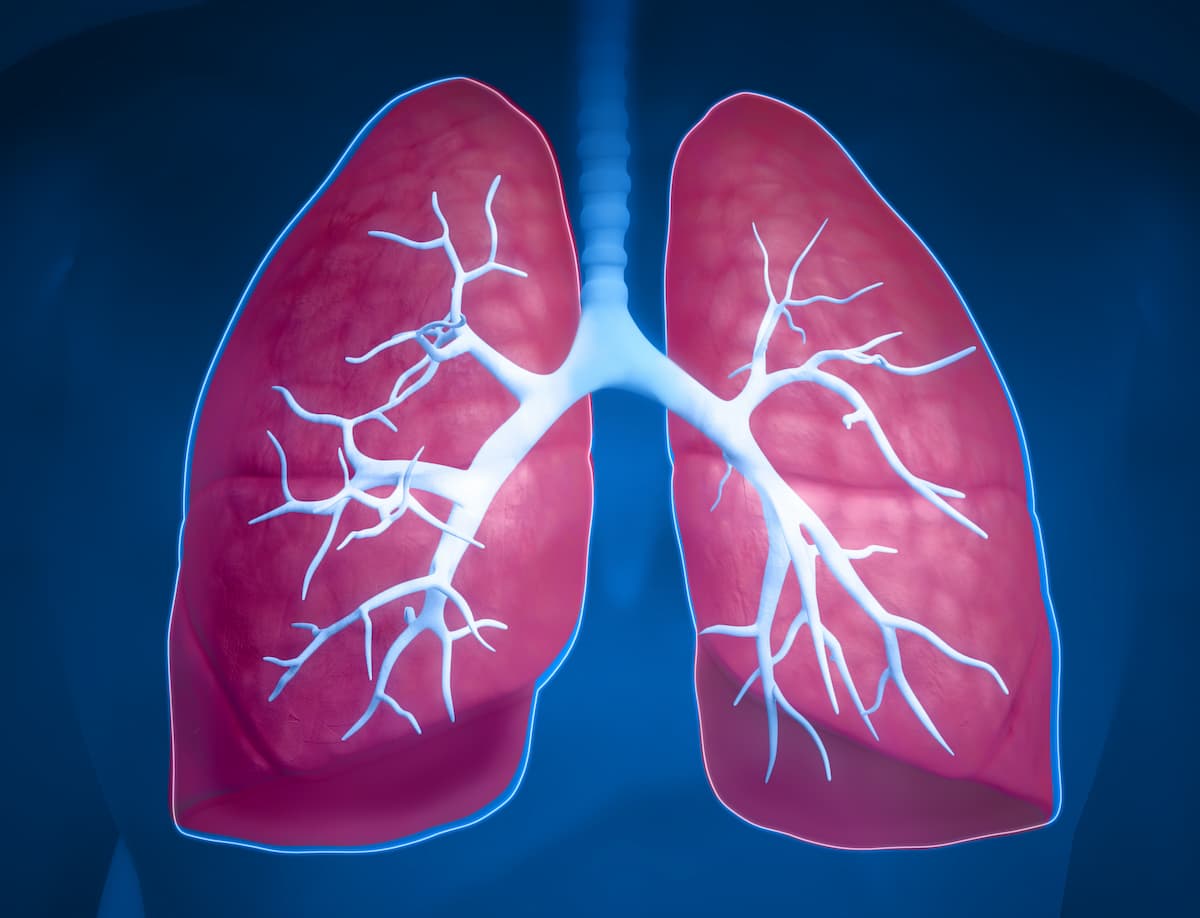Crizotinib Falls Short on DFS and OS Improvements in ALK+ NSCLC
When compared with observation, adjuvant crizotinib did not improve disease-free survival or overall survival in ALK-positive NSCLC.
When compared with observation, adjuvant crizotinib did not improve disease-free survival or overall survival in ALK-positive NSCLC.

At the IASLC 2025 World Conference on Lung Cancer (WCLC), results from the phase 3 ALCHEMIST study (NCT02194738) were presented, showing that adjuvant crizotinib (Xalkori) did not benefit overall survival (OS) or disease-free survival (DFS) vs observation in the treatment of patients with resected ALK-positive non–small cell lung cancer (NSCLC).1
At a median follow-up of 58.3 months, treatment with crizotinib showed no DFS benefit vs observation, with a hazard ratio (HR) of 1.06 (90% CI, 0.63–1.77; P = .86). Further assessment of DFS outcomes according to sex, stage, and receipt of postoperative radiation therapy did not reveal any significant advantages across subgroups. OS was also not significantly prolonged with crizotinib vs observation, with an HR of 0.49 (90% CI, 0.18–1.37; P = .26).
“Adjuvant crizotinib did not prolong DFS compared with observation nor OS—although these data are not mature—in resected ALK-positive NSCLC,” lead study author David Gerber, MD, of UT Southwestern Medical Center said in a presentation of the data. “Toxicities resembled those of crizotinib in advanced ALK-positive NSCLC and led to treatment discontinuation in more than 25% of cases.”
ALCHEMIST Trial Overview
The phase 3 ALCHEMIST trial enrolled patients with completely resected, early-stage ALK-positive NSCLC confirmed by local and/or central testing.1,2 Eligible patients had negative surgical margins, with no restrictions on surgical type or lymph node sampling. Adjuvant chemotherapy or radiation was permitted but not required, and patients were enrolled within protocol-defined windows following surgery based on prior adjuvant therapy.
Patients were randomized to receive crizotinib (n = 85) or undergo observation (n = 81). The trial was powered at 80% to detect a 40% reduction in the hazard of disease-free survival (DFS), corresponding to an expected median DFS of 70 months with crizotinib vs 42 months with observation, using a one-sided 0.05-level log-rank test. The primary end point was DFS, with secondary end points including OS and safety.
The trial was activated in August 2014, with planned enrollment of 168 patients to achieve 160 centrally confirmed ALK-positive cases. Enrollment concluded in August 2024 with 166 patients accrued across 84 sites. The study was terminated in April 2025 following recommendations from the Data and Safety Monitoring Committee.
The median age was 63 years (range, 22–81) in the crizotinib group and 61 years (range, 29–88) in the observation group. 1 Females comprised 68% and 62% of patients in these respective groups. The majority of patients were White (80% vs 77%), followed by Asian (8% vs 5%) and Black (11% vs 4%). Hispanic ethnicity was reported in 5% of patients receiving crizotinib and 8% in the observation arm.
Smoking history showed that 12% of patients on crizotinib and 4% on observation were current smokers, 35% vs 32% were former smokers, and 53% vs 64% had never smoked.
With respect to disease stage, stage II disease was present in 36% vs 37% of patients in the crizotinib and observation groups, respectively. In these respective groups, 41% vs 47% had stage III disease. Surgical procedures included lobectomy (77% vs 88%), pneumonectomy (7% vs 1%), and sublobar resection (16% vs 13%).
Lymph node assessment varied, with complete mediastinal lymph node dissection performed in 36% vs 38%, systematic sampling in 33% vs 33%, and no lymph node assessment in 20% vs 8% of patients in the crizotinib and observation arms, respectively.
Adjuvant chemotherapy was received by 87% of patients in the crizotinib arm and 95% in the observation arm. Postoperative radiation therapy was administered to 37% vs 31% of patients, respectively.
Safety Findings
Treatment with adjuvant crizotinib was associated with notable rates of toxicity and treatment discontinuation. A total of 34 patients (43%) experienced grade 3 or higher treatment-related adverse effects (TRAEs) with adjuvant crizotinib. The most common AEs included diarrhea (8%) and edema (5%). Eye disorders, abdominal pain, elevated alanine aminotransferase levels, and decreased neutrophil count each occurred in 3% of patients. One treatment-related grade 4 stroke was reported.
The median duration of crizotinib therapy was 13.5 months (IQR, 3.4-23.9). Treatment discontinuation occurred in 77 patients, most frequently due to completion per protocol (40%) or adverse effects (27%). Additional reasons for discontinuation included patient withdrawal or refusal (14%), disease recurrence (5%), initiation of other treatment (4%), and other causes (9%).
References
- Gerber DE, Wang Y, Lange CJ, et al. Phase 3 trial of crizotinib vs observation for surgically resected early-stage ALK+ NSCLC. Presented at: International Association for the Study of Lung Cancer 2025 World Conference on Lung Cancer; September 6-9, 2025; Barcelona, Spain. Abstract 2559.
- Genetic testing in screening patients with stage IB-IIIA non-small cell lung cancer that has been or will be removed by surgery (the ALCHEMIST screening trial). Clinicaltrials.gov. Updated September 3, 2025. Accessed September 9, 2025. https://www.clinicaltrials.gov/study/NCT02194738